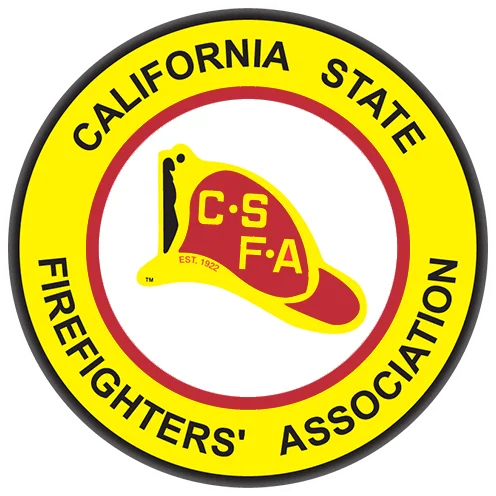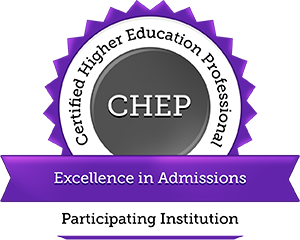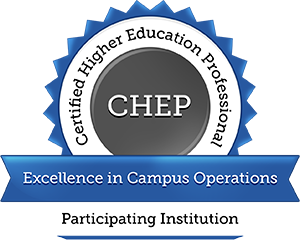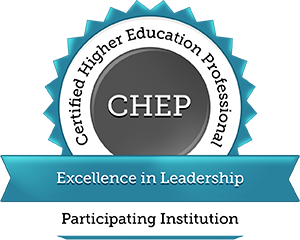|
BAM 105 |
Introduction to Business |
3 |
Introduction to Business introduces the business world and the contemporary environment in which it operates. How business operations are managed and organized will be explored and the basic ideas of marketing processes and consumer behavior will be discussed. Additionally, students will become aware of the changing face of business, with its current technological and management information system advances.
Course Objectives:
Upon successful completion of this course, students will be able to:
- Describe the types of ethical and social responsibility issues that affect the contemporary business environment.
- Explain how businesses, operations, and people are organized and managed.
- Demonstrate an understanding of the principles of marketing, including marketing processes, consumer behavior, customer relationships.
- Explain the financial issues facing business today, including money, banking, securities and investments.
- Demonstrate an understanding of the utilization of information technology within a business environment.
- Demonstrate proficiency with academic writing related to the introduction to business course content.
|
|
BAM 306 |
Principles of Marketing |
3 |
Principles of Marketing examines the various functions of modern marketing including the market, product and price systems, distribution structure, and promotional activities. The course covers services, nonprofit and for-profit organization marketing including the planning, implementation, evaluation, and control of the marketing effort. Ethics in marketing and socially responsible global marketing are also explored.
Course Objectives:
Upon successful completion of this course, students will be able to:
- Define and describe the multiple factors related to the field of marketing.
- Analyze the various types of market opportunities.
- Examine concepts related to product, pricing, and distribution decisions.
- Demonstrate an understanding of promotion and communication strategies.
- Demonstrate proficiency with academic writing related to marketing.
|
|
BAM 312 |
Business Communications |
3 |
Business Communications covers the fundamental dimensions of communication: language and behavior. Alternatives for conveying messages are discussed. The course also covers, in detail, the various channels and media for business communication, with guidelines for effective and successful use of each.
Course Objectives
Upon successful completion of this course, students will be able to:
- Describe the foundations of business communication and analyze why it is important.
- Demonstrate an understanding of the fundamentals of effective business communication and the writing process.
- Describe best practices in finding, evaluating, and processing information to effectively plan and write formal reports and proposals.
- Discuss how to develop and deliver effective business presentations with the use of slides and visual media.
- Assess the importance of writing employment messages, and describe best practices for interviewing for jobs.
- Demonstrate proficiency with academic writing related to business communications.
|
|
BAM 315 |
Principles of Management |
3 |
Principles of Management serves as an introduction to the discipline of management. It is designed to integrate the accepted theories in the area with real world applications to provide students with the basic knowledge and skills needed for managing others. This course begins with a discussion of the current issues in management and then proceeds to cover the traditional functions of management: planning, organizing, leading, and controlling. By the end of this course, students should have an understanding of the needs of modern public and private organizations, including emerging national and international trends.
Course Objectives
Upon successful completion of this course, students will be able to:
- Examine the role of managers in organizations, and identify the value of studying management.
- Describe managerial challenges and issues relating to ethics, diversity, and social responsibility.
- Demonstrate an understanding of management functions including planning and managing strategy.
- Examine organizational structure and human resources in relation to managing, organizing, and leading individuals and teams within the organization.
- Demonstrate proficiency with academic writing related to management.
|
|
BAM 406 |
Business and Society |
3 |
Business and Society explores both market and nonmarket components of the business world. While interrelated, managers must understand how the market and nonmarket environments interact and address those issues to achieve superior performance. To do this, the course combines the disciplines of economics, political science, and law to provide students with a deeper understanding of the complex managerial issues involved. The focus is on strategy and its implementation within the context of social, governmental, and legal constraints.
Course Objectives
Upon successful completion of this course, students will be able to:
- Define and discuss key concepts related to the role and concept of social responsibility in the business world.
- Demonstrate an understanding of the factors impacting corporate governance, the relevant stakeholders, and organizational behavior in relation to social responsibility.
- Examine the interrelationship and impact of government on business and the related laws, regulations, and politics impacting each.
- Explain the importance of ethics in relationship to corporate social responsibility and the issues impacting ethical behavior.
- Demonstrate proficiency with academic writing related to business and its role in society.
|
|
BAM 410 |
Organizational Theory and Behavior |
3 |
3 Semester Units
Organizational Theory and Behavior offers an evidence-based management approach to organizational behavior with an emphasis on critical thinking and application. Students will examine best practices for becoming effective leaders and managers in organizations. This course will also explore emerging topics, trends, and research in the field of organizational behavior and organizational change.
Course Objectives
Upon successful completion of this course, students will be able to:
- Define organizational behavior, key theories, theorists, and research in the field.
- Analyze the personality factors which contribute to understanding individuals in organizations.
- Explore the various approaches for influencing and motivating employees in organizations.
- Examine best practices for building relationships in teams, addressing ethical issues, and creating a diversity inclusive environment.
- Evaluate leaders as change agents and examine best practices for achieving an organizational culture.
- Demonstrate proficiency with academic writing related to organizational behavior.
|
|
BAM 411 |
Human Resource Management |
3 |
Human Resource Management explores the fundamentals of human resource management and its significance to a company’s success. Examined, in detail, are HR functions such as recruitment, retention, appraisal, compensation, labor relations, development, and current trends in the field. Practical skills-oriented concepts and techniques are highlighted throughout the course, as is the emphasis on building and maintaining an engaged and productive workforce.
Course Objectives
Upon successful completion of this course, students will be able to:
- Identify and define human resource management, and describe major trends and best practices related to the field.
- Demonstrate an understanding of staffing and training issues related to human resource management.
- Develop an understanding of compensation plans and total rewards.
- Recognize the importance of employee and labor relations, social responsibility, ethics, and risk management as they relate to the field.
- Identify the issues of managing human resources on a global scale.
- Demonstrate proficiency with academic writing related to human resource management.
|
|
BAM 418 |
Small Business Management |
3 |
Small Business Management presents an overview of entrepreneurship, including launching a new venture, managing an ongoing venture, financial planning, taxation, and other topics specific to entrepreneurs. Students will learn the necessary elements to successfully start, run, and manage a small business and be able to apply those concepts and ideas within their business careers, even if they do not choose the entrepreneurial route.
Course Objectives
Upon successful completion of this course, students will be able to:
- Demonstrate an understanding of the basics and challenges of small business management including its role in the U.S. economy.
- Recognize the importance of strategic planning and early decisions in small business management.
- Describe key principles of financial and legal management.
- Explain aspects of marketing in small business in relation to products and services.
- Demonstrate proficiency with academic writing related to small business management.
|
|
BAM 421 |
Operations Management |
3 |
Operations Management introduces the theory and practice of operations management and explores the systems approach to tie information together. The course explores issues in operations strategy, development, and implementation. Students will be able to apply various management tools, such as inventory management and supply-chain management, to effectively contribute to managing business operations.
Course Objectives
Upon successful completion of this course, students will be able to:
- Identify and define operations management and assess why it is important to businesses.
- Develop an understanding of product design and process management.
- Demonstrate an understanding of best practices related to process performance improvement, utilizing business forecasting, capacity planning, inventory management, and supply chain design.
- Analyze important issues relating to operations management including location, project management and trends influencing the field.
- Demonstrate proficiency with academic writing related to operations management.
|
|
BCJ 100 |
Introduction to Criminal Justice |
3 |
Introduction to Criminal Justice aims to provide students with a general understanding of the criminal justice system’s response to crime in society. It is important to note that the general theme of this course involves the delicate balance between community interests and individual rights that criminal justice decision-making requires. This theme will be explored by examining the criminal justice process, focusing on how the system is structured to respond to crime.
Course Objectives
Upon successful completion of this course, students will be able to:
- Describe the nature and extent of crime and discuss the foundations of law and the criminal justice system.
- Examine law enforcement from the history of policing through to contemporary issues and challenges confronting the profession.
- Describe the role of the courts in the criminal justice system and the process of prosecution, criminal trial, and sentencing.
- Discuss the key aspects of corrections including its history, community and institutional corrections, prison life, and parole.
- Examine special issues in criminal justice related to juvenile justice, terrorism, human trafficking, hate crimes, and the #MeToo Movement.
- Demonstrate proficiency with academic writing related to criminal justice.
|
|
BCJ 230 |
Criminal Investigation |
3 |
Criminal Investigation aims to provide students with an overview of the criminal investigation field. Course topics include the fundamentals of criminal investigation, follow-up investigative processes, methods for obtaining information, and how to approach the investigation of different types of crimes.
Course Objectives
Upon successful completion of this course, students will be able to:
- Identify and define the study of criminal investigation and discuss the foundations of criminal investigation.
- Demonstrate an understanding of follow-up investigative processes and analyze the legal issues involved.
- Discuss best practices for obtaining information through interviews, interrogations, criminal intelligence and surveillance operations.
- Examine the various types of crimes related to people, property and national security.
- Demonstrate proficiency with academic writing related to criminal investigation.
|
|
BCJ 240 |
Procedures in the Justice System |
3 |
Procedures in the Justice System is organized around the theme of balancing the need to detect, investigate, prosecute, and punish crime against the constitutional commitment protecting the rights and liberties of individuals. This course is designed to help students develop a working knowledge of the procedures involved in the justice system and covers the fundamental principles and procedures employed throughout the legal process. Topics include factors related to investigating crimes, considerations and practices related to the procedural and prosecutorial processes, and the trial, sentencing, and appellate processes.
Course Objectives
Upon successful completion of this course, students will be able to:
- Describe the criminal justice process and the sources of criminal procedure.
- Demonstrate an understanding of the factors and requirements related to searches and seizures.
- Examine practices related to interrogations, lineups, and identifications.
- Evaluate the different remedies for constitutional violations.
- Examine the pretrial and trial process, sentencing, and appeals.
- Demonstrate proficiency with academic writing related to procedures in the justice system.
|
|
BCJ 351 |
Forensic Science |
3 |
Forensic Science provides an introduction to the field of forensic science as it relates to crime and terrorism. Students will examine best practices within the field including evidence collection, preservation, and analysis. The methods and science used to analyze physical evidence is presented. This course will also introduce students to the role of forensic science related to terrorism and homeland security.
Course Objectives
Upon successful completion of this course, students will be able to:
- Define forensic science and criminalistics including commonly used terms and key concepts.
- Examine the concept of trace evidence and pattern evidence related to fingerprints, shoeprints, document analysis, and firearms.
- Explore the concept of chemical evidence related to metals, gunshot residue, arson, and drugs of abuse.
- Explore the concept of biological evidence related to toxicology, biological fluids, and DNA typing.
- Assess the role of forensic science as it relates to terrorism investigation.
- Demonstrate proficiency with academic writing related to forensic science.
|
|
HCA 200 |
The United States Health Care System |
3 |
The United States Health Care System course is designed to introduce students to the organization, structure, and operation of the nation’s health care system. This course aims to help students effectively identify their present and future roles as consumer, provider, manager, decision-maker, and analyst. The course examines an overview of the health care system, causes and characteristics of health service utilization, the nature of wellness and disease, individual provider settings, financial and nonfinancial resources used and needed, and the measurement of quality of care.
Course Objectives
Upon successful completion of this course, students will be able to:
- Define health and healthcare key terminology, and analyze the role and process of healthcare in America.
- Describe aspects of employment in healthcare delivery including key personnel and the required education and training.
- Examine the various delivery systems in healthcare and discuss related legal, ethical, and political issues.
- Analyze issues in the healthcare industry regarding research, cultural competency, and international applications.
- Demonstrate proficiency with academic writing related to the United States healthcare system.
|
|
HCA 320 |
Essentials of Managed Health Care |
3 |
Essentials of Managed Health Care focuses on health insurance as it impacts the management of healthcare organizations. This course provides a systematic overview of the history of managed healthcare and health insurance in the United States, types of health plans and available payers, the provider network, utilization management, quality management, accreditation, Medicare Advantage, Medicaid managed care, and laws and regulations in health insurance and managed care.
Course Objectives
Upon successful completion of this course, students will be able to:
- Discuss the major forces shaping health insurance and managed care today.
- Examine the basic elements of health benefits coverage and provider payment options.
- Describe the basic components of utilization management for medical services.
- Explain the Medicare and Medicaid benefit structures.
- Identify key state and federal laws and regulations governing managed care.
- Demonstrate proficiency with academic writing related to the essentials of managed care.
|
|
HCA 340 |
Cultural Diversity in Health and Illness |
3 |
Cultural Diversity in Health and Illness promotes an awareness of the dimensions and complexities involved in interactions between health professionals and patients from diverse socio-cultural backgrounds. It examines different cultural perspectives regarding health, illness and health care that exists within American society by demonstrating traditional health beliefs and practices among selected populations. Emphasis is placed on the importance of having culturally competent health care professionals to better serve an increasingly diverse population.
Course Objectives
Upon successful completion of this course, students will be able to:
- Define and describe the importance of cultural and linguistic competence in healthcare.
- Examine the various health domains including health, healing, and familial traditions.
- Analyze trends in healthcare and describe current issues and barriers to healthcare.
- Discuss health care problems in various demographic groups.
- Demonstrate proficiency with academic writing related to cultural diversity in health and illness.
|
|
HCA 420 |
Medical Law and Ethics |
3 |
Medical Law and Ethics explores the study of medical ethics, or applied ethics, for healthcare professionals who often face dilemmas that are not experienced by the general population. The fast-paced growth of medical technology has made the study of ethics even more relevant. The study of bioethics, or biomedical ethics, refers to moral dilemmas due to advances in medicine and medical research. Since medical law and ethics are often interrelated, students need to have a clear understanding of both in order to protect themselves, their employer, and the patient. The study of ethics includes many questions for which there is no one answer.
Course Objectives
Upon successful completion of this course, students will be able to:
- Define medical law, ethics, and bioethics and examine why it is important to study them.
- Examine the legal environment of healthcare including the legal and court systems and essential laws for healthcare professionals.
- Describe issues related to the healthcare environment regarding liability, confidentiality, and the physician-patient relationship.
- Demonstrate an understanding of medical ethics and describe future trends in healthcare.
- Demonstrate proficiency with academic writing related to medical law and ethics.
|
|
MKT 230 |
Consumer Behavior |
3 |
Consumer Behavior explores how the human experience is affected by consumption and how consumers seek value to address other needs. This course examines the internal, external, and situational which affect consumer behavior. The course also covers the role of consumption, value, and satisfaction on consumer behavior.
Course Objectives
Upon successful completion of this course, students will be able to:
- Define consumer behavior, and explain its role in business and society.
- Discuss the internal influences on consumer behavior including perception, cognition, motivation, emotion, personality, and attitude.
- Discuss the external influences on consumer behavior including culture, groups, and interpersonal factors.
- Describe the situational influences which affect consumer behavior and the major perspectives on consumer decisionmaking.
- Explain the role of consumption, value, and satisfaction on consumer behavior.
- Demonstrate proficiency with academic writing related to consumer behavior.
|
|
MKT 310 |
Advertising and Promotions |
3 |
Advertising and Promotions will allow students to see a collective picture of integrated marketing communications. Focus is placed on business-to-business marketing concepts, international marketing discussions, brand management, and various advertising and promotional tactics. This is an integrated approach with a solid advertising core.
Course Objectives
Upon successful completion of this course, students will be able to:
- Describe and examine the foundations and role of advertising, promotion, and marketing.
- Analyze the communications process and examine the role of consumers, ad agencies, and other marketing communication organizations.
- Evaluate objectives and budgeting for integrated marketing communications programs and describe the process of development.
- Demonstrate an understanding of monitoring, evaluation, and control in measuring program effectiveness.
- Examine regulations, global applications, social, ethical and economic issues related to advertising and promotions.
- Demonstrate proficiency with academic writing related to advertising and promotions.
|
|
MKT 333 |
Marketing Management |
3 |
Marketing Management presents marketing management as a core business activity involving everyone in the firm, not just the marketing department, and is structured to improve individual, unit, and organizational performance as it continually adapts and adjusts to the marketplace of the 21st century. Topics covered include: the major challenges facing marketing today; virtual, digital, and social marketing management; analytics, metrics, and measurements available through new technologies; customer-centric and service marketing orientations; branding and brand equity; and global, ethical, legal, and sustainable marketing practices.
Course Objectives
Upon successful completion of this course, students will be able to:
- Define and examine issues currently impacting marketing management (i.e. global, ethical, sustainable, strategy, planning, and competition considerations).
- Discuss best practices for using information to drive marketing decisions.
- Evaluate the essential role of the product experience in marketing.
- Demonstrate an understanding of the key elements of pricing decisions and delivering the value offering.
- Examine the role of promotion and advertising in communicating the value offering.
- Demonstrate proficiency with academic writing related to marketing management.
|
.png)

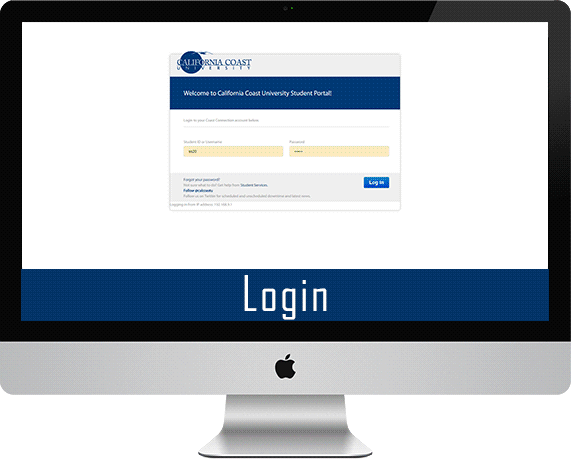

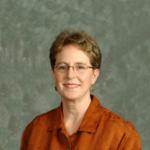
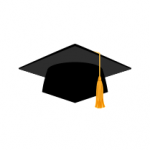
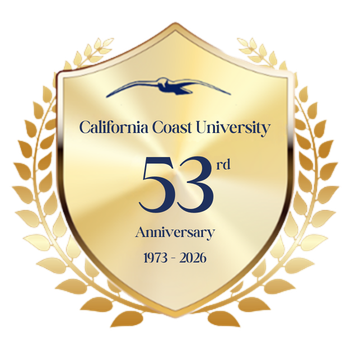




.jpg)


